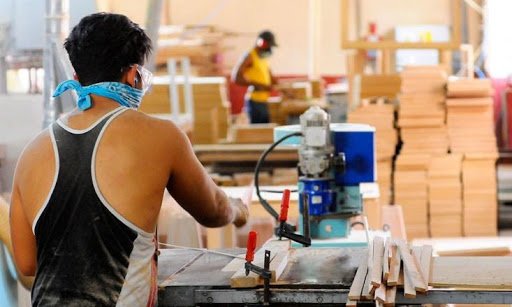The Cuban Council of Ministers approved a group of new measures to “continue advancing in the improvement of state-owned enterprises,” as part of its current economic strategy, the official media reported.
The regulations, approved during the September session of the island’s highest governing body, “tend to grant greater autonomy to enterprises,” while “making more flexible” the operation of the basic business units, according to the head of the Permanent Commission for Implementation and Development, Marino Murillo, quoted by Cubadebate.
As part of the new measures, the distribution of retained earnings after taxes is made more flexible, with the elimination of the limit that has existed until now of up to five average salaries “without conditioning it to the fulfillment or overcompliance of the directive indicators,” explained Murillo.
The generalization of “pay for high performance” was approved for the entire business system, which is currently a faculty of enterprises that apply the so-called Business Improvement, while also allowing retired workers to be hired to occupy the same position held at the time of obtaining their pension, “as long as it responds to the interest of the entity.”
Likewise, state enterprises were authorized to hire the entity’s workers outside of their working hours “in certain services, different from those they perform according to their employment contracts.”
Empresas cubanas recibirán beneficios fiscales por aumento de exportaciones
The new measures also envisage the extension of the powers to the heads of the enterprises, as well as the fact that “the determined basic business units prepare financial statements, pay taxes on profits and distribute profits, without having legal status, establishing as a condition that the enterprise cede part of its assets,” the source indicated.
In addition, the Council of Ministers approved, “where necessary and advisable,” the conversion into enterprises the basic business units that close production cycles, totally or partially, or carry out activities of a different nature within the same enterprise, “after analysis and substantiation of the President of the Superior Organization of Business Management.”
After the approval of the measures, Prime Minister Manuel Marrero insisted on “the need to take better advantage of the measures that have been approved in recent times to unleash the potential of our productive forces and strengthen enterprises.”
“We have to promote strong socialist state enterprises that substitute imports, not only of a finished product, but also of raw materials that allow us to close production cycles, and carry out the much requested and necessary production chain,” Marrero said, quoted by Cubadebate.
Experts: monetary unification is necessary, but not sufficient, to update the Cuban economy
The strengthening and “improvement” of state-owned enterprises is one of the main commitments of the Cuban government’s economic strategy, which defends them as the pillar of the island’s battered economy, even when it envisages other forms of non-state management such as cooperatives and the self-employed.
The Council of Ministers met at a time when Cuba is going through a complex economic situation due to the reinforcement of the U.S. embargo and the impact of the coronavirus pandemic, for which, until the end of August, close to one billion pesos were spent on the island on expenses, as reported at the meeting by Minister of Economy Alejandro Gil.
Faced with this scenario, Cuban President Miguel Díaz-Canel praised the work carried out in the battle against COVID-19, which has made it possible, he said, for the island to show “indicators and figures much lower than those shown today at the international level,” and affirmed that his government is working “in the design of the normal operation of the country, with realism, and recovering economic and social activity as much as possible, so that the economy, in a gradual and controlled way, is reactivated.”
However, he called for a response that is “more immediate, more proactive, more intense, more creative, more intelligent, from all scenarios,” for the sake of the desired economic reactivation.









